The rising cost of living, natural disasters and the pandemic have put a lot of pressure on Australians, so everyone is being reminded to look out for a mate on R U OK? Day.
Research shows 40 per cent of people believe an expert should be the person to check in when someone isn't coping with their mental heath.
But today, everyone is being urged to touch base with friends, family or colleagues as sometimes asking the simple question can save a life.
READ MORE: Petrol prices are about to jump up. Here's why
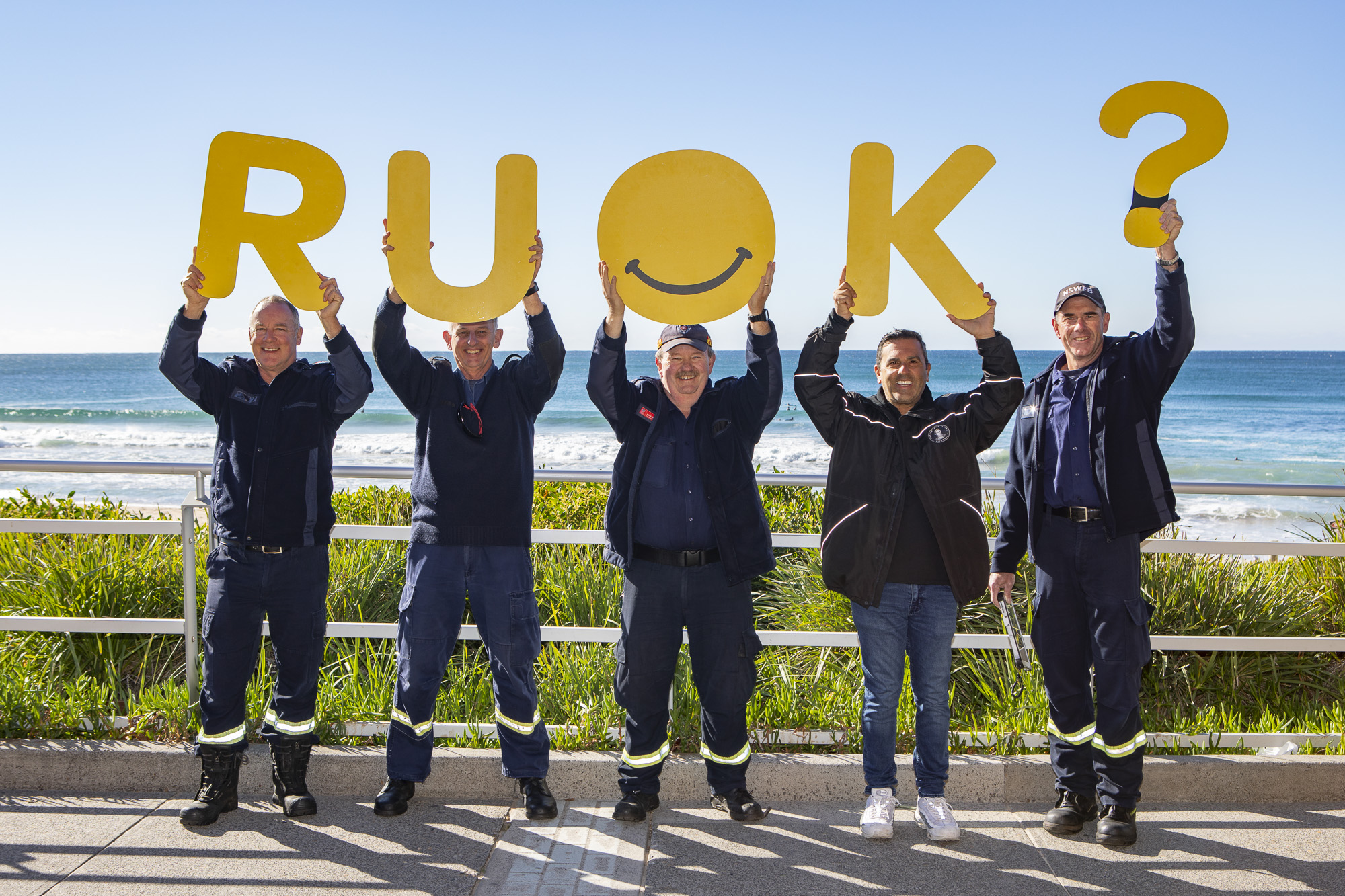
There are a range of mental health support resources below.
R U OK? CEO Katherine Newton said everyone already has the skills to offer support to those in need.
"Everyone experiences life's ups and downs and in recent times there has been a lot to cope with," Newton said.
"We want to reassure Australians that you don't need to be an expert to have an R U OK? conversation.
"Listening and giving someone your time might be just what they need to help them through a difficult period."
How to ask 'are you okay?'
There are four simple steps in asking "are you okay".
The first is simply going into the conversation relaxed, friendly and concerned.
Help the person open up by asking questions like:
- How are you going?
- What's been happening?
You can also mention specific concerns like, "you seem less chatty than usual, what's been going on?"
Remember, if they don't want to talk don't criticise or push them.
A good response would be: "Please call me if you ever want to chat" or "Is there someone else you'd rather talk to?"
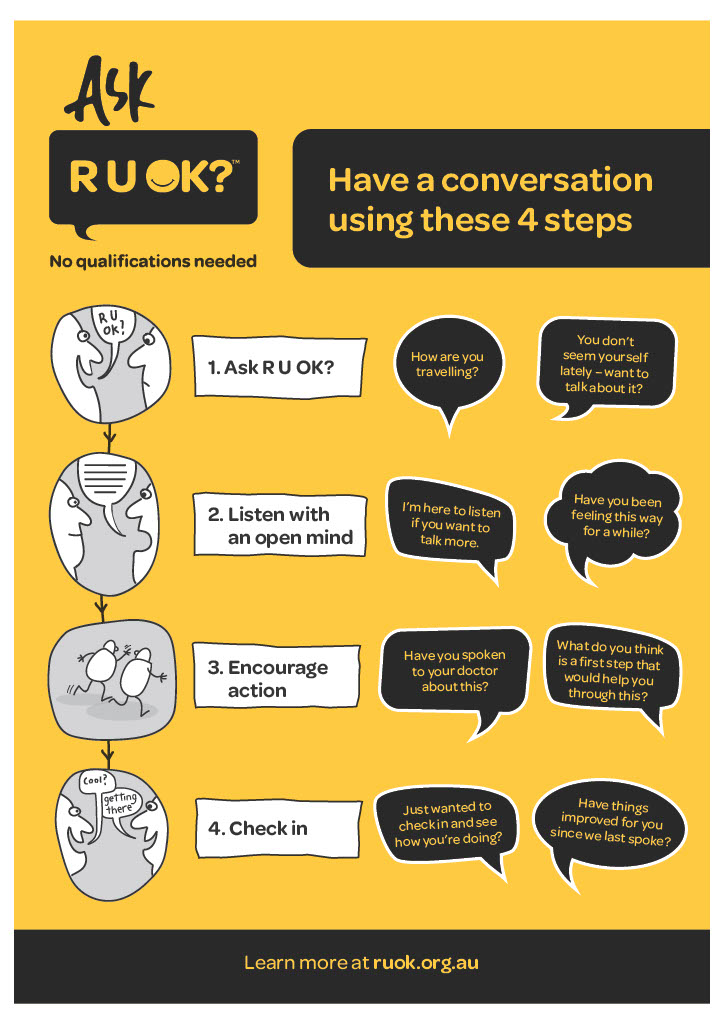
What to do if someone says they're not okay?
Once you've asked the question and if the response is if they're not okay, R U OK? recommends listening with an open mind.
The top tips are:
- Take what they say seriously and don't interrupt or rush the conversation
- Don't judge their experiences or reactions but acknowledge that things seem tough for them
- If they need time to think, sit patiently with the silence
- Encourage them to explain: "How are you feeling about that?" or "How long have you felt that way?"
- Show that you've listened by repeating back what you've heard (in your own words) and ask if you have understood them properly.
It's also recommended to encourage the person to take action.
This includes asking questions like "How would you like me to support you?" or "What's something you can do for yourself right now?".
READ MORE: Interest rates hit seven-year high
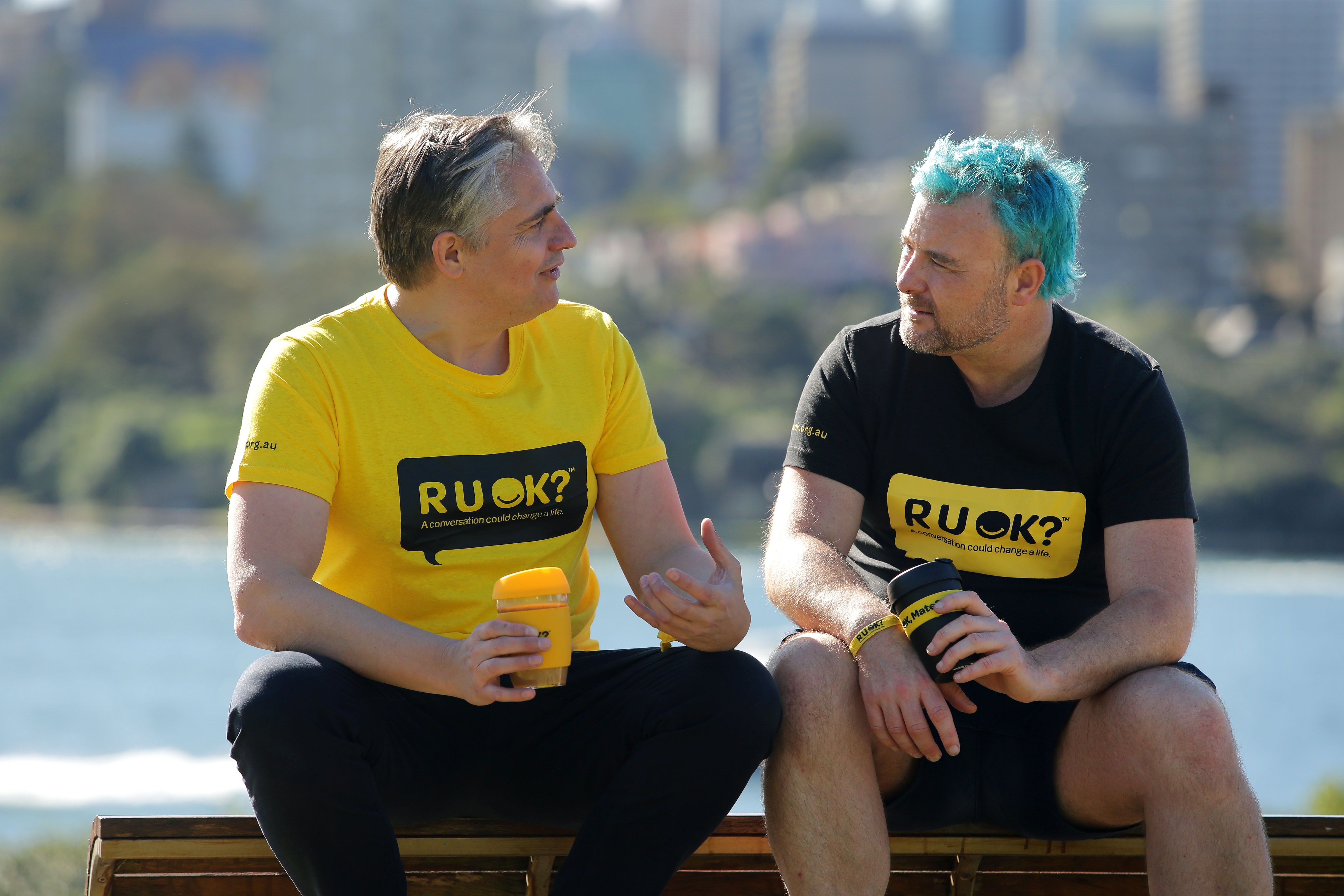
If they've been feeling down for more than two weeks, it's helpful to recommend they see a health professional.
You could say, "It might be helpful for you to talk to someone you can support you. I'm happy to help find that person."
It's also important to check in after the conversation.
R U OK? has recommended popping a reminder in your diary for a couple of weeks to ask something like, "I've been thinking of you and wanted to know how you've been going since we last chatted".
"Stay in touch and be there for them. Genuine care and concern can make a real difference," R U OK? recommends.

Where to get help?
The R U OK? Day website has a lot of tips on how to help others if they admit they're struggling - or if you're finding things tough yourself.
Other organisations are also offering plenty of help.
Beyond Blue has a 24-hour Coronavirus Mental Wellbeing Support Service.
A call to 1800 512 348 will help you get tips and strategies for support from counsellors as well as referrals to other services if needed.
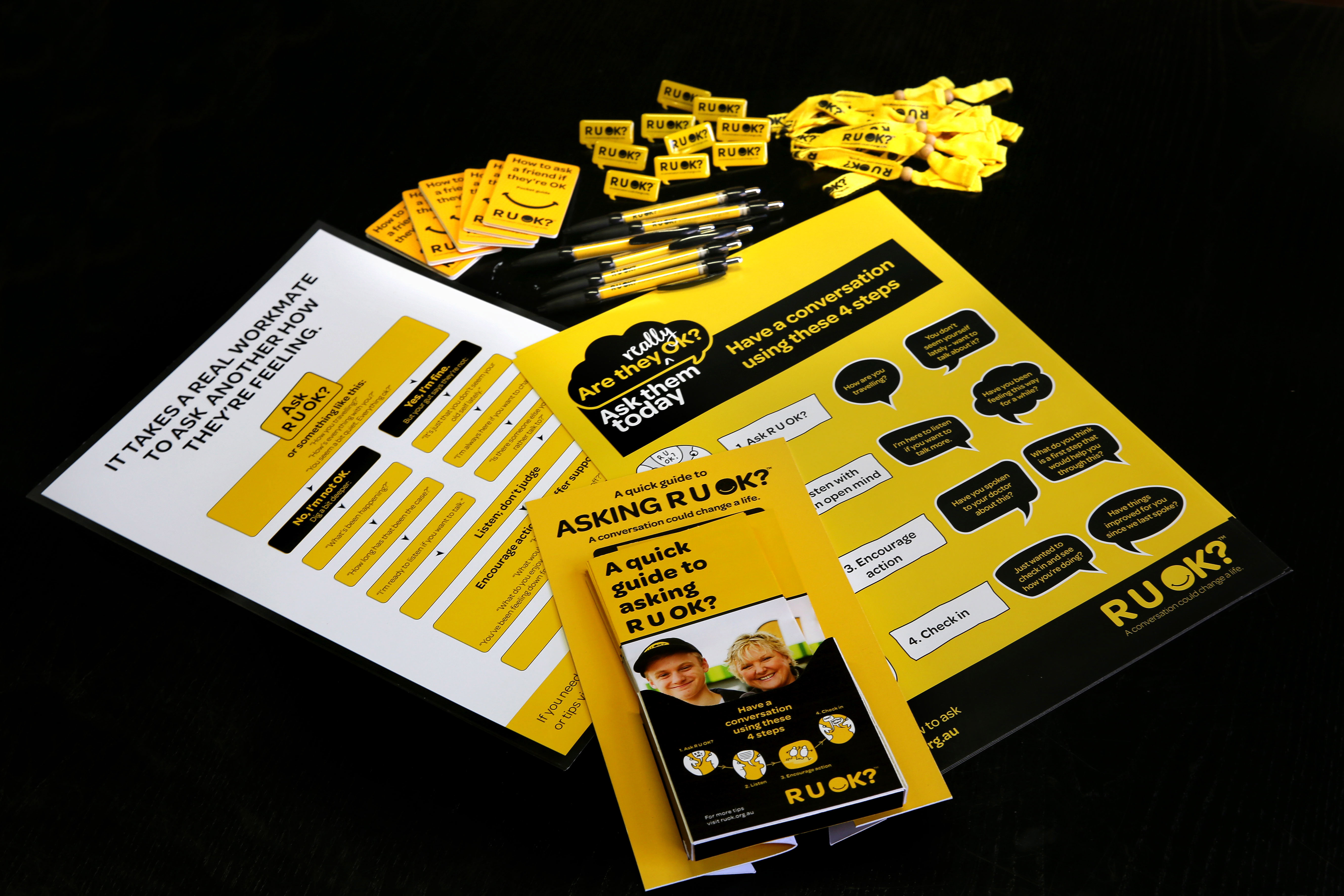
While Lifeline is also there to give support either online or on 13 11 14.
Black Dog Institute also has resources for people as well as employers and medics, while there are dedicated services for younger people.
They include ReachOut, which provides tools and support to help young people with everyday issues and tough times, and Kids Helpline on 1800 55 18 00, a 24-hour telephone counselling support line for children and young people from five to 25.
For immediate assistance you can also contact:
- Domestic Violence Line - 1800 65 64 63
- 1800RESPECT - 1800 73 77 32
- Suicide Callback Service - 1300 65 94 67
- If you are in an emergency, or at immediate risk of harm to yourself or others, please contact emergency services on Triple Zero (000).
- NSW Domestic Violence Line - 1800 65 64 63 (24 hours a day, seven days a week)
- 13YARN - 13 92 76 - 24/7 support line for Aboriginal and Torres Strait Islander people.
- Open Arms - 1800 011 046 - 24/7 support for current and ex-serving defence force personnel and their families.
- Gambling Help Online - 1800 858 858 - free, confidential 24/7 telephone help for anyone affected by gambling.
There is a range of other support services available. The R U OK? website lists all of the available services here.
What events are on?
The official event for R U OK? Day in 2022 is on Thursday September 8 from 12 to 12.30pm (AEST) online nationally.
The virtual event will have a number of special guests to share tips on having the conversation and their personal stories.
Schools, universities and workplaces will be offering events splashed in yellow to raise awareness about asking "are you okay".
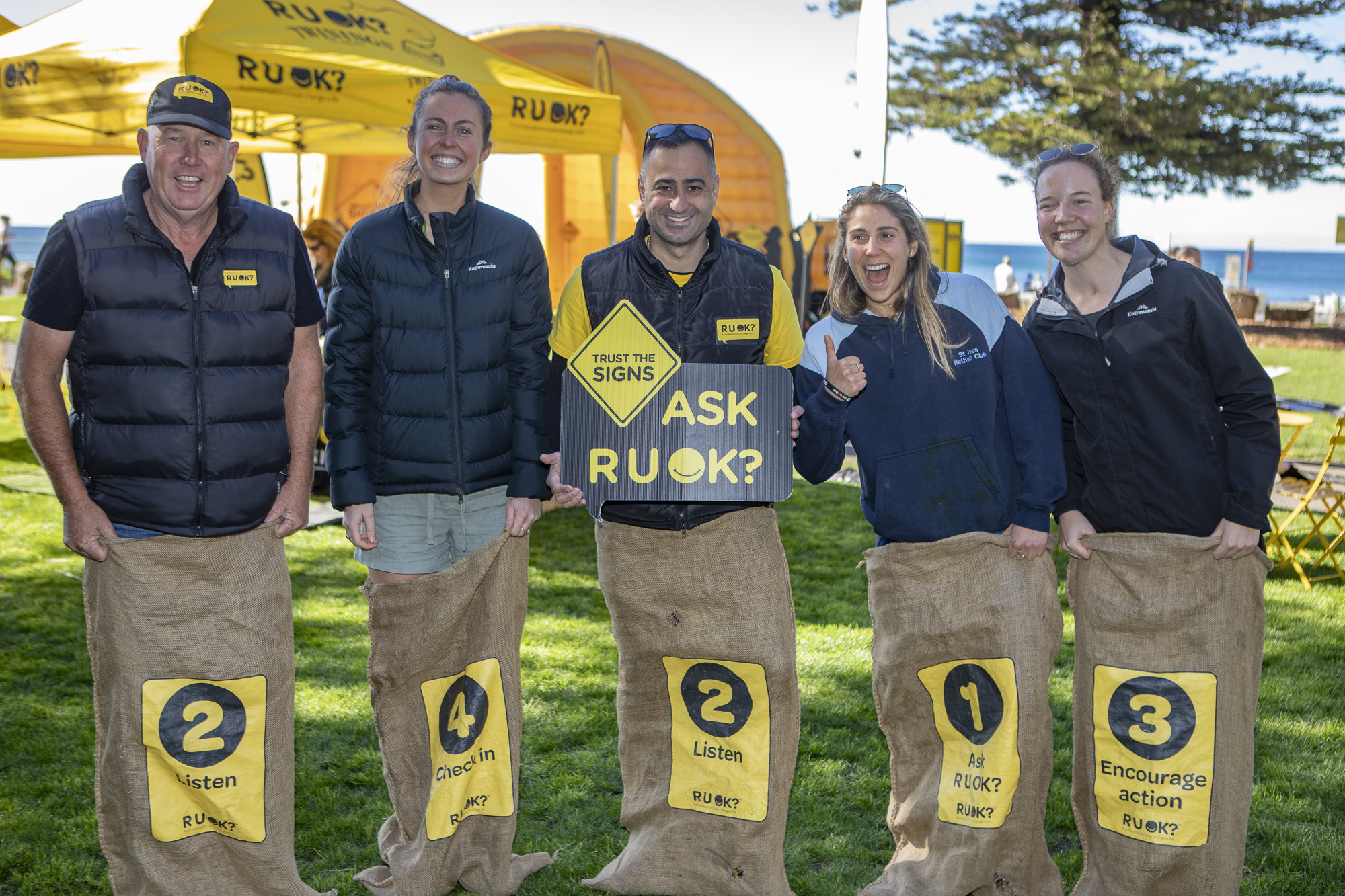
Check in with your school, university, workplace or local community groups to see what's on.
